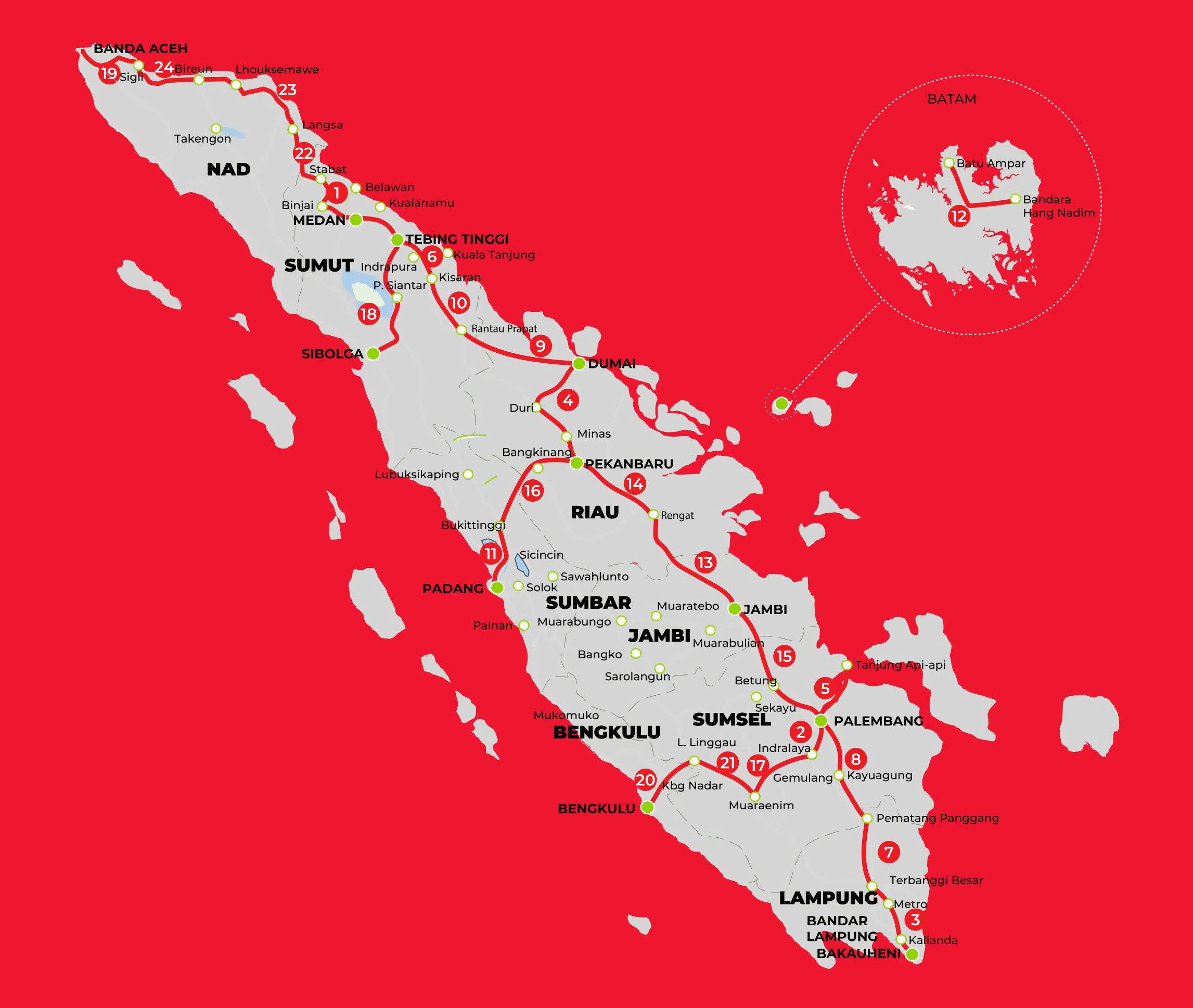Trans Sumatera Toll Road
In an archipelago of 17,508 islands, a road network system is a fundamental need to connect people and commerce with jobs, services, markets, reduce logistics costs, and stimulate industrial growth in Indonesia. Responding to these needs, the government places high connectivity as one of the main priorities. Through Presidential Regulation No. 100 of 2014 which was later amended by Presidential Regulation No. 117 of 2015, the Government gave a mandate to Hutama Karya to build and develop the Trans-Sumatra Toll Road. This toll road will connect Lampung and Aceh through 24 different roads with a total length of 2,704 km and will be fully operational in 2024. As the second largest island in the archipelago with a population exceeding 55 million people, Sumatra plays an important role in the country's economy. Endowed with various natural potentials and abundant commodities, ranging from rubber, palm oil, coffee, petroleum, coal, and natural gas, in 2015 Sumatra contributed 22.21% of Indonesia's gross domestic product (GDP), the second largest after Java, according to the Central Statistics Agency (BPS). Therefore, the progress and sustainability of the Sumatran economy is very important to ensure stability and growth in the region. If growth stops, the development of the surrounding area will be hampered. More Info

